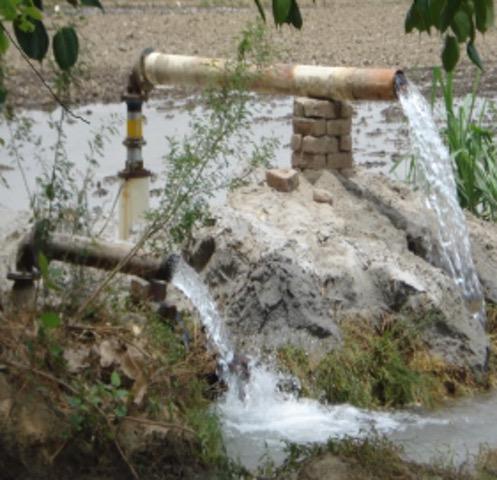
Groundwater pumping in Punjab, India.
A new study led by City College of New York civil engineer Naresh Devineni finds that substantial groundwater depletion in regions of India where grains are acquired for public distribution is a principal sustainability challenge for the country of 1.4 billion.
The study identifies specific adjustments in the Indian Government’s procurement and distribution system to rectify this issue, particularly concerning irrigation systems that utilize groundwater, which is facilitated by subsidized electricity. This irrigation mechanism has long been seen as vital for India’s food security goals.
“Electricity for farmers in India was heavily subsidized, so they had no incentive to save their water,” said Devineni, associate professor in CCNY’s Grove School of Engineering and the lead author of the paper. “Instead, they tried to maximize produce at the expense of the groundwater. This is not sustainable.”
The researchers used over 100 years of daily climate data, along with economic, crop yield, and other related variables to demonstrate that crop revenue can be optimized by changing where crops are procured and grown. The study also found that the Indian government’s procurement targets can be met without irrigation. This, in turn, can increase farm income, while also stopping groundwater depletion. However, more sustainable irrigation practice could potentially grow the average farm income by 30 percent.
Additionally, the study noted that decreasing electricity subsidies in areas with groundwater depletion can assist in reducing the need to redistribute farm income, which remains a key impediment to political changes required to change the procurement system.
“This is not the end of the study,” Devineni added, whose affiliation includes the Columbia Water Center at Columbia University. “We can now start the conversation with policymakers, and see if the model from the paper can be modified by new proposed solutions. We have shown that this solution is possible, but we still have more work to do.”
The study, “Solving groundwater depletion in India while achieving food security,” appears in the June issue of Nature Communications, and provides a novel perspective on how to achieve food security, as well as how to realign and increase crop production in India and potentially elsewhere.
Shama Perveen from the non-profit sustainability advocacy organization Ceres and Upmanu Lall from the Department of Earth and Environmental Engineering, Columbia University, co-authored the paper.
About the City College of New York
Since 1847, The City College of New York has provided a high-quality and affordable education to generations of New Yorkers in a wide variety of disciplines. CCNY embraces its position at the forefront of social change. It is ranked #1 by the Harvard-based Opportunity Insights out of 369 selective public colleges in the United States on the overall mobility index. This measure reflects both access and outcomes, representing the likelihood that a student at CCNY can move up two or more income quintiles. In addition, the Center for World University Rankings places CCNY in the top 1.8% of universities worldwide in terms of academic excellence. Labor analytics firm Emsi puts at $1.9 billion CCNY’s annual economic impact on the regional economy (5 boroughs and 5 adjacent counties) and quantifies the “for dollar” return on investment to students, taxpayers and society. At City College, more than 16,000 students pursue undergraduate and graduate degrees in eight schools and divisions, driven by significant funded research, creativity and scholarship. CCNY is as diverse, dynamic and visionary as New York City itself. View CCNY Media Kit.
Max Dorfman/Jay Mwamba
p: 212.650.7580
e:
jmwamba@ccny.cuny.edu